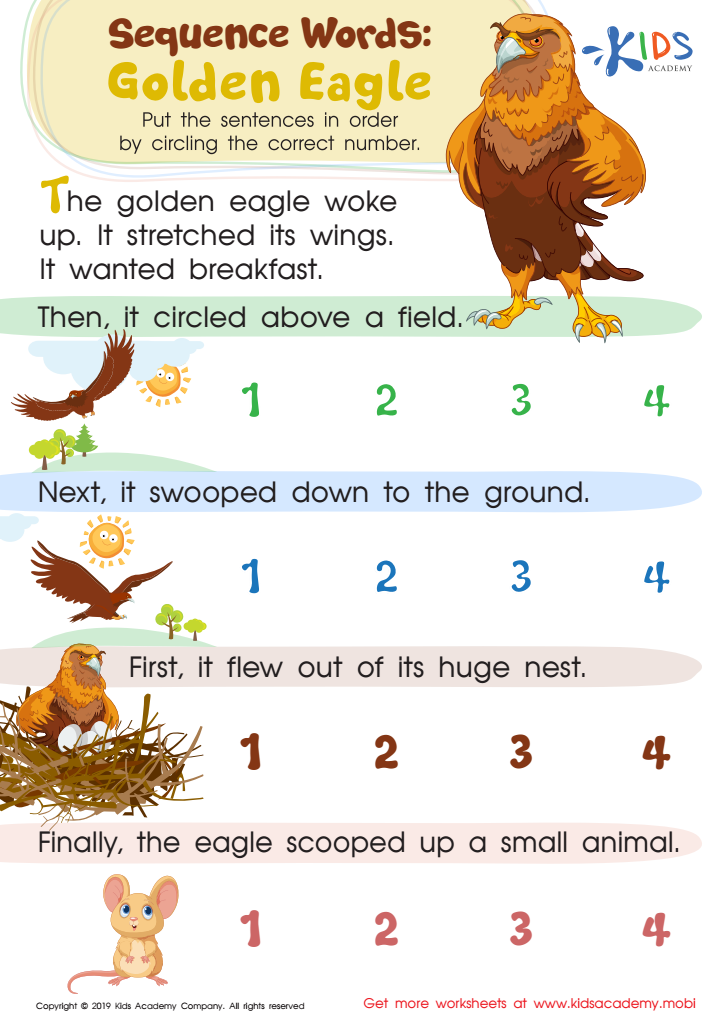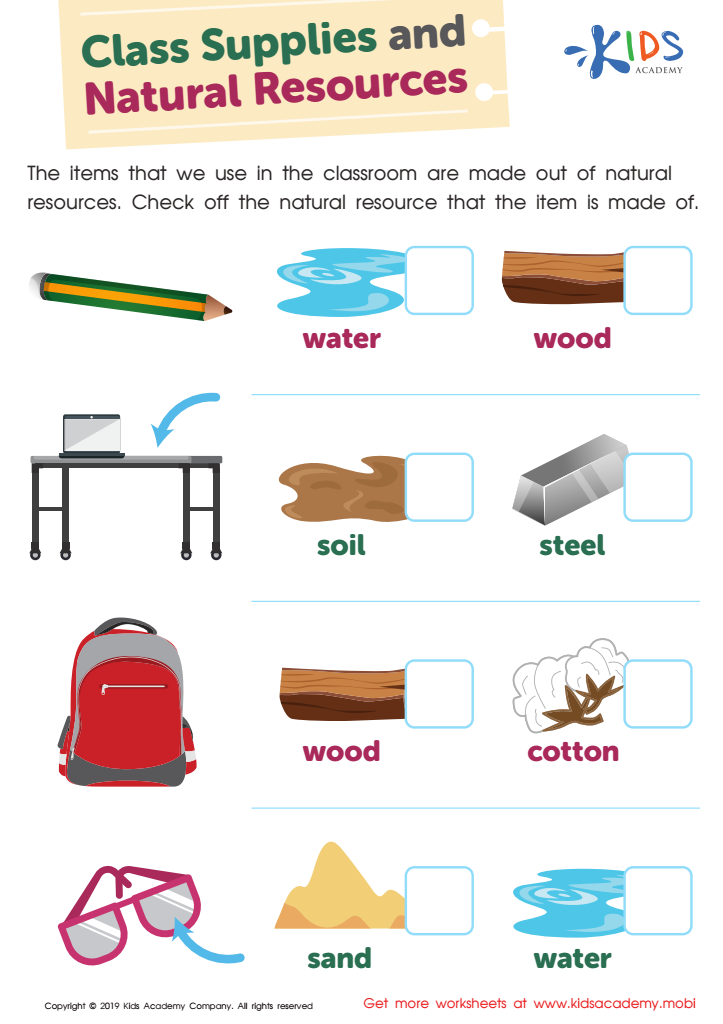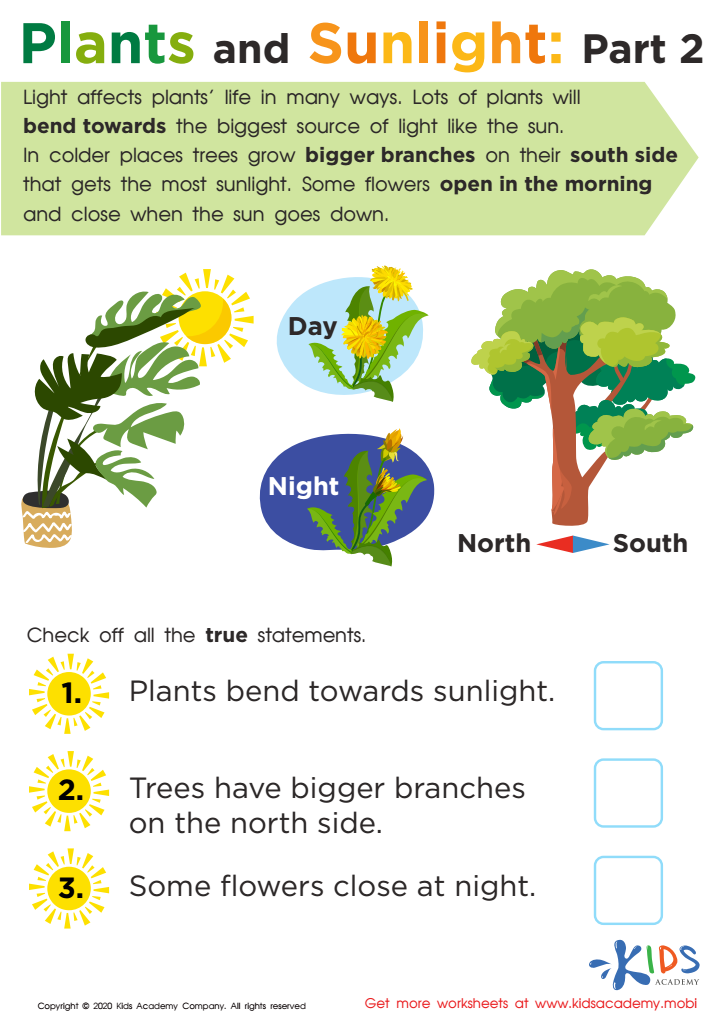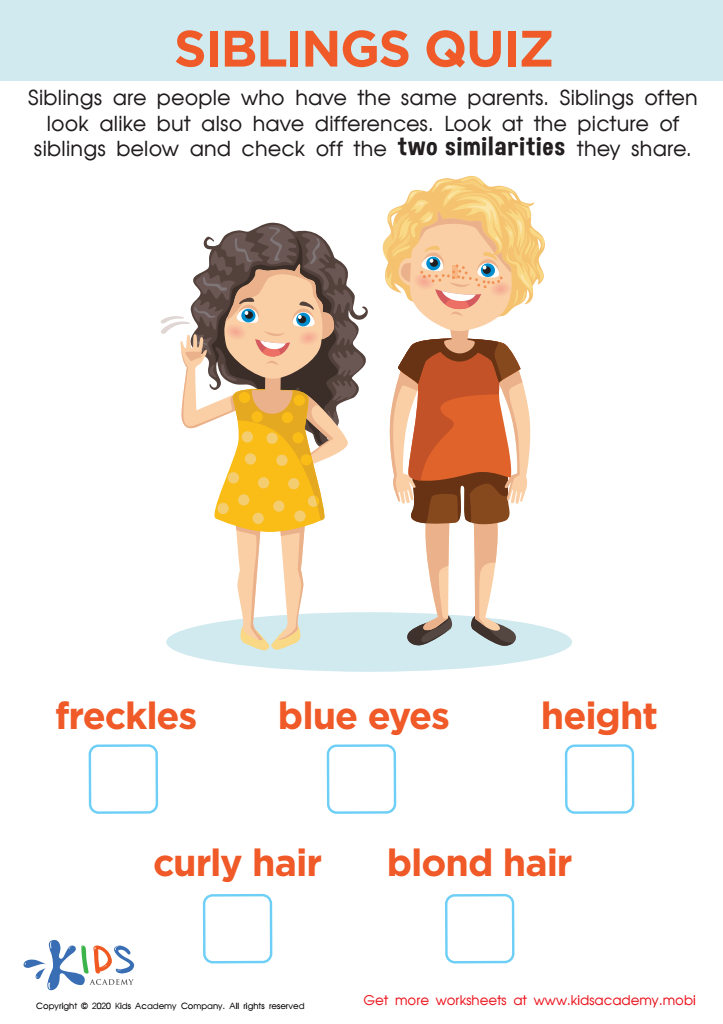Logical Reasoning Normal Plants and Animals Worksheets for Ages 3-8
5 filtered results
-
From - To
Discover a fun and educational way to enhance your child's logical reasoning skills with our engaging worksheets focused on plants and animals for ages 3-8! These printable activities challenge young minds to observe, compare, and categorize various aspects of the natural world. Each worksheet is designed to promote critical thinking and problem-solving through colorful images and interesting scenarios. Your child will have the opportunity to recognize patterns, sequence events, and make connections, all while exploring the fascinating realm of plants and animals. Perfect for home or classroom use, these worksheets make learning enjoyable and interactive! Explore our collection today!


Sequence Word Eagle Worksheet


Sorting Animals in 3 Groups Worksheet


Class Supplies and Natural Resources Worksheet


Plants and Sunlight: Part 2 Worksheet


Siblings Quiz Worksheet
Logical reasoning is a crucial skill for young children, particularly when understanding the natural world, including plants and animals. For ages 3-8, fostering logical reasoning helps children develop critical thinking abilities, which enhance their comprehension of complex concepts as they grow.
Parents and teachers should prioritize this learning as it cultivates observation and analytical skills. When children engage with plants and animals, they learn to categorize and compare, recognizing patterns and relationships. Understanding how living things interact within their environment encourages curiosity and exploration, laying the foundation for scientific inquiry.
Introducing logical reasoning through fun, age-appropriate activities, such as sorting different species, observing growth cycles, or discussing animal behaviors, makes learning enjoyable. These experiences also enhance vocabulary as children describe their observations and conclusions.
Moreover, logical reasoning helps children develop problem-solving skills. For example, identifying why a plant thrives under certain conditions but not others encourages them to think critically about cause and effect. This skill set is advantageous as they progress in life, both academically and socially.
Ultimately, integrating logical reasoning surrounding plants and animals nurtures a child's cognitive development, encouraging a lifelong love for nature and science while paving the way for informed, thoughtful individuals.
 Assign to My Students
Assign to My Students














